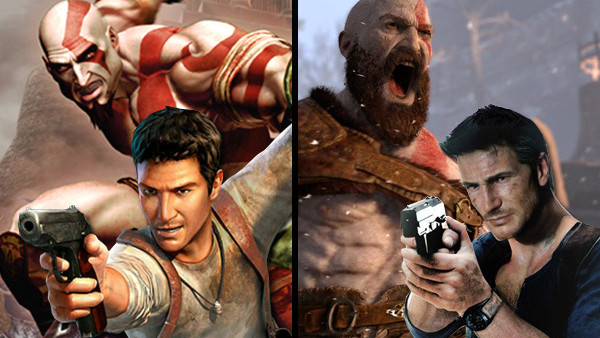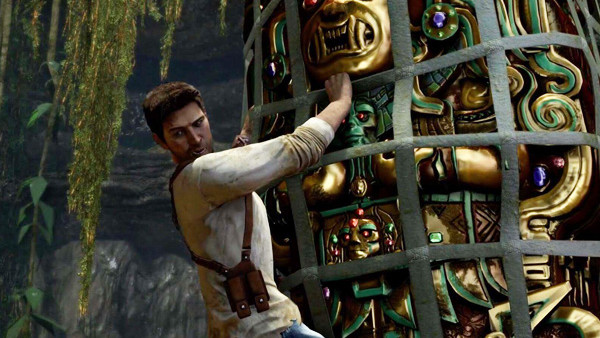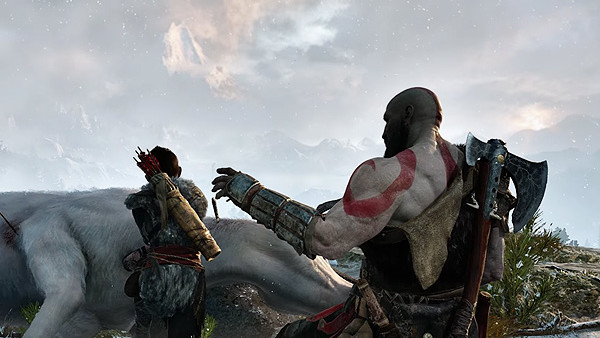From Nathan Drake To Kratos - How Video Games Finally Matured
How many characters have actually grown up in front of you?

How long have you been gaming?
Its a question that divides generations, can start thousands of conversations and for me especially, forms the basis of an identity I comfortably share with millions of others. The characters, worlds, musical scores, set-pieces, boss battles etc. we encounter across our lifetime all factor into how much we grow to identify with - and eventually love - the industry itself.
I say all this, because across the last few months especially, something pretty incredible has happened. Video games themselves have always had specific titles that deal with more mature themes and character portrayals, but the characters themselves - who can you say has actually aged along with us?
First, take Nathan Drake. The formerly quip-happy adventurer lived to hunt for treasure. Hed survive collapsing buildings, helicopter gunfights and overturned ocean liners, shrug it off and carry on searching for that next gold coin.
Why? Because he was a video game character.

Then we got Uncharted 4: A Thiefs End, and all of a sudden, Drake had grown up. We see him settled down with a wife, a steady job, perhaps a mortgage - all things we associate with the horror of later life. Stereotypically or societally, the abandoning of all the youthfully exuberant traits that make you, you.
At the beginning of the game, we see Drake sitting in his attic, one awash with trinkets, photographs and various plundered rewards, proving that literally, his most treasured memories are now packed away into an unseen part of his now-everyday life. Theyre forced into the back of his mind, his attic, the back of this 'normal life'.
Now, take the Kratos of 2018's God of War reboot. Formerly one of the most badly written and one-dimensional characters ever put to code, a Spartan warrior who existed to rip and tear everything in his way to shreds, not stopping for a second, not contemplating his actions whatsoever. He existed as pure, anarchistic escapism, a controllable machete with you at the hilt. A video game character.
But what happens when his big revenge kick is over? Say you're Kratos, you've accomplished your mission, your reason for living only being to destroy your enemies, and the ones that fooled you into slaughtering your own wife and daughter. You do this and all is well, but what now?
God of War showed Kratos has retired to a life far away from the trials and tribulations of Gods and Titans. He's gotten intimate with a mostly unseen female figure, the result after she passes being that he's now playing full-time father to a fairly reserved young boy; one who clearly looks up to him, but simultaneously, the two have almost nothing in common.

Still, he has his signature anger issues. Given the brain-ripping actions we've partaken in across the previous games, such things have been hilariously overblown, but in the new, matured God of War, he suppresses his natural response to physically act out, instead coming across in a cold and distancing manner, saving his pent-up aggression and using it to mentor the boy's inadequacies across an intense world of demons and gods.
That alone, taking a character who players have previously identified with as exuding a purely rage-filled persona and then making it a character trait - a personality defect, almost - is genius. We now have less a video game character, and more a man, a person; someone who thinks about their actions, and such a turn is indicative of the entire industry's direction.
Or at least, I certainly hope it is.
Back to Drake, and his predilection for adventure is part of Uncharted 4's arc, delving into why Nate does what he does, how it makes him feel, and why he should let his partner, Elena, in on his intentions to do 'one more mission', before this finally redefines him as a person.
Not only that, but both Drake and Kratos more matured and self-reflective positions serve to reframe their respective trilogies entirely. We see that Nate's adventures were the sort of thing indulged in because he could, because he had not a care in the world - a mindset that only comes from growing up, thinking back on what you've done, why you did it, and whether you'd do it again.
Kratos questions whether he's nothing but a cold-blooded murderer; a butcher of everything in his path. The question of whether he can even feel or love again, and whether he should, is at the heart of the revamped God of War. As a microcosm of this entire idea in one image, we see Kratos attempt to reach out and physically bond with son, Atreus, only to withdraw at the last second.
All of this is to say, only video games could do this. Only games could play upon the feelings weve all had and shared with these characters in the moment i.e. the rush of surviving a frenetic set-piece as Drake, or tearing down a gargantuan boss as Kratos, how we hold them dear and want to relive them over and over - and can now use them as a plot device.
The reason A Thief's End is so damn effective, is because Naughty Dog know that by showing you old treasures, old images from the trilogy and old enemies, you'll feel something specific to what you did the first time round on those respective adventures. Likewise, Sony Santa Monica know that by playing on the idea of Kratos past weighing heavily on him, and acknowledging just how overblown and psychotic he once was, a new story about learning to overcome these demons is genuinely fascinating.
Lamenting the past and wanting to relive events is a natural part of growing up and realising who you are as a person. That quintessential maturity is the crux of Uncharted 4 and God Of War.
If this is what learned developers can do with characters as previously ham-fisted as Kratos, what can they do with all the thousands of experiences and emotions you've built up from a lifetime of gaming?
The industry is in a very special place right now, but the destination is only so remarkable, because of how unique our own journeys were to get there in the first place.